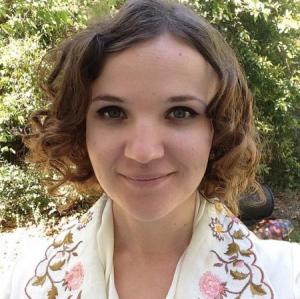Reevaluating the Discussion of Tolerance in the U.S.
Reevaluating the Discussion of Tolerance in the U.S.
 The nature of tolerance and its place within American society has of late come to the forefront of national attention, through issues such as the legalization of gay marriage. To say that exchanges surrounding this topic are “heated” is to put it lightly, and we find ourselves amidst increasing social division and lacking in the cohesion so needed in our leadership and society. Our inability to engage in dialogue in a manner that grants dignity to the opposing party is a glaring issue, and while this is not a problem exclusive to the US, it is one that is imperative to address.
The nature of tolerance and its place within American society has of late come to the forefront of national attention, through issues such as the legalization of gay marriage. To say that exchanges surrounding this topic are “heated” is to put it lightly, and we find ourselves amidst increasing social division and lacking in the cohesion so needed in our leadership and society. Our inability to engage in dialogue in a manner that grants dignity to the opposing party is a glaring issue, and while this is not a problem exclusive to the US, it is one that is imperative to address.
One such divisive point that has brought the character of the nation under scrutiny is the recent debacle surrounding Rowan County Clerk Kim Davis’ refusal to issue gay marriage licenses; her actions thereby countering the decision by the Supreme Court on June 26. While supporters of the LGBTQ movement found a moment of celebration in light of this ruling, others saw it as a violation of their religious freedom and began to push back. This has created a new level of tension and self-identified persecution amongst those who believe strictly in heterosexual marriage as the only acceptable definition of that institution.
Here is where we find the current shift in American public discourse, and we are now confronted with a
reality that is law. It is not proposed here what stance one should take regarding this SCOTUS ruling, but rather to look more closely at how we as specialists in the conflict analysis and resolution field might begin to approach this topic with due caution and care and encourage others to follow suit. Where public opinion might draw lines between the concepts of religious and secular tolerance, there may in fact be more synthesis present than is widely acknowledged or understood.
Tolerance is defined as “a fair, objective, and permissive attitude toward opinions, beliefs, and practices that differ from one's own,” and is, indeed, an ideal many Americans wish to uphold. Valued as something that ought to be universally embraced, the average citizen idolizes almost too much a utopian conception of unity while simultaneously failing to see the benefit of conflict and how it might actually forward the general cause toward the concept of a more perfect union. In this instance of blatant refusal like Davis’ to enforce the law of the land, should we as CAR specialists instead see an opportunity to channel this conflict in the direction of more open communication? Simply, yes.
One aspect that is not brought to broader attention is the idea of restoration of communities who disagree with the ruling. The popular online meme campaign of “Still does the job” is an easy example of how objectors are viewed and how there is great pushback against their viewpoints. However, rather than comment on the morality of their positions, it is more beneficial that we begin to construct spaces where those who dissent can have the security necessary to learn how to coexist in a society that does not strictly adhere to their values. Their vehement defense of conservative values represents a vicious cycle that is only fueled by the sharp criticism of more liberal voices.
By no means does this advocate exclusion or isolationism, but rather granting dignity to those who feel the core of their identity is being attacked, namely groups who hold socially conservative values linked primarily to religious beliefs. In an interview with CNN, Davis remarked on verbal attacks made in response to her actions, such as branding her “Hitler.”
Social censoring, a method of accountability in any society, can quickly devolve into adding the proverbial fuel to the fire of conflict if not administered with proper intention. Such name calling as listed above presents little to no possibility of redemption for the accused, and is a process of dehumanization widening the rift in our society. While outrage at her comments and actions may be appropriate, if we are seeking to create a society of plurality of opinion, we must do more than discuss issues of tolerance: we must also address the goals in debating the issues of the day.
There will be more Kim Davises in times to come, but rather than immediately focusing on the level of her divergence from what is now the increasingly accepted social norm, we should channel our efforts towards engagement that allows for reconciliation, instead of alienation, at the end of the debate. If we cannot engage in dialogue without depriving others of security or opportunities for restoration, then perhaps we as a society should have a more honest look at what we truly value when discussing the issues of the day.




